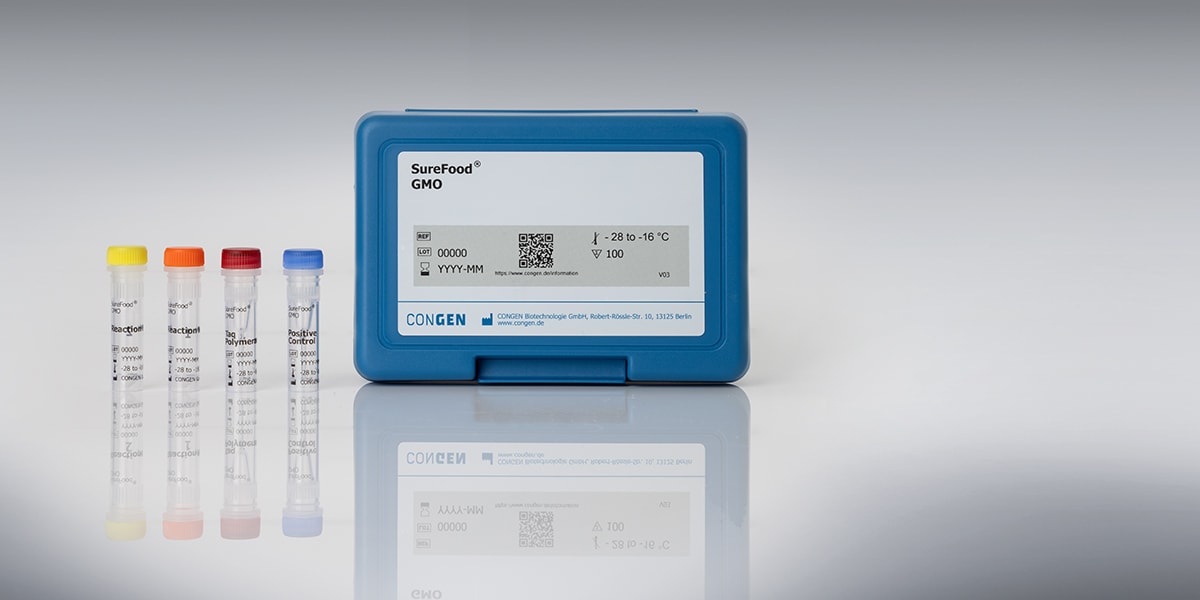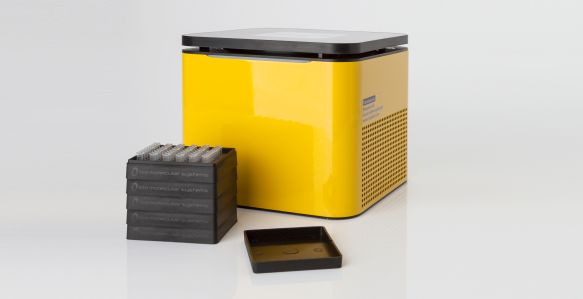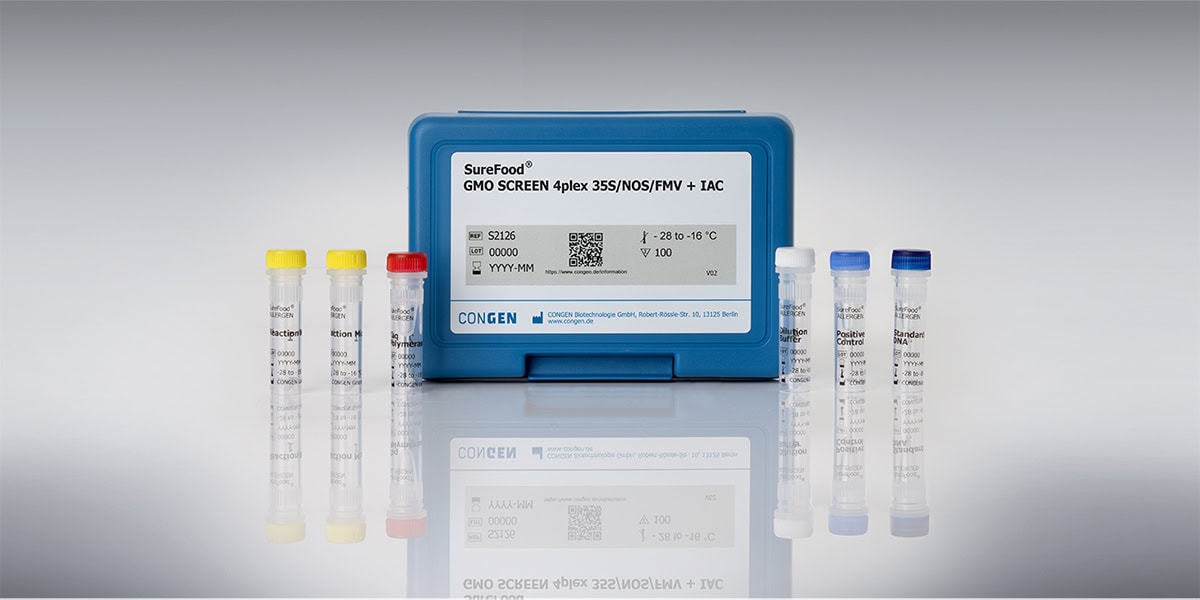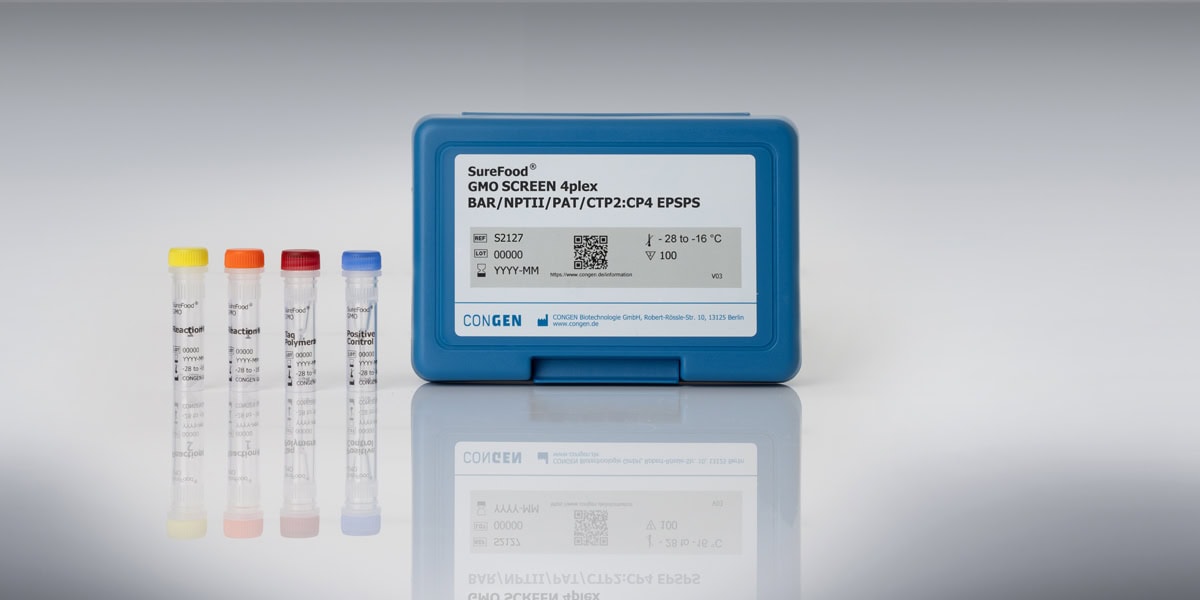
SureFood® GMO SCREEN CaMV
Art. No. S2027
Product info about SureFood® GMO SCREEN CaMV
Intended use
The test detects CaMV DNA. The presence of CaMV DNA indicates an infestation with the cauliflower mosaic virus. Host of the CaMV are Brassicaceae plants. With the virus specific detection system SureFood® GMO CaMV it is possible to verify the detection of a genetic modification.
This kit can be used for screening of genetically modified organisms (GMOs) in food, feed and seeds.
The specific detection is according to the official collection of detection methods of §64 German food law.
General Information
The real-time PCR assay can be performed with commonly used real-time PCR instruments. The internal technical verification of instruments was performed on Agilent Mx3005P, Agilent AriaDx, Bio-Rad CFX96, Applied Biosystems 7500, Bio Molecular Systems MIC, Qiagen Rotor-Gene Q, R-Biopharm RIDA®CYCLER, Roche cobas® z 480 Analyzer and Roche LightCycler® 480 II.
Accessories
Dear customers,
we now provide the documents for our products in an electronic format which include the Instructions for Use (IFU), Safety Data Sheets (SDS), Application notes and the Certificate of Analysis (CoA). For batches placed on the market after 1st of January 2024, you can find our documents on the eIFU portal congen.de/information.
| Specifications | |
|---|---|
| Art. No | S2027 |
| Test format | 100 reactions |
| Sample preparation | For DNA-preparation of raw material the use of SureFood® PREP Basic (Art. No. S1052), SureFast® Mag PREP Food (Art. No. F1060) and for highly processed food and feed the use of SureFood® PREP Advanced (Art. No. S1053) is recommended. SureFood® PREP Add On (Art. No. S1055) is intended to be used for the extraction of DNA from raw materials as well as processed food and feed with sample weight of 2 g. It is used in conjunction with the SureFood® PREP Basic. |
| LOD (Detection Limit) | The SureFood® GMO SCREEN CaMV PCR has a limit of detection of ≤ 5 DNA copies. The assay limit of detection depends on sample matrix, processing grade, DNA preparation and DNA content. |
| Files | |
|---|---|
| Instructions | German/English |
| MSDS | Statement-MSDS-12-22-NG.pdf (English) |




